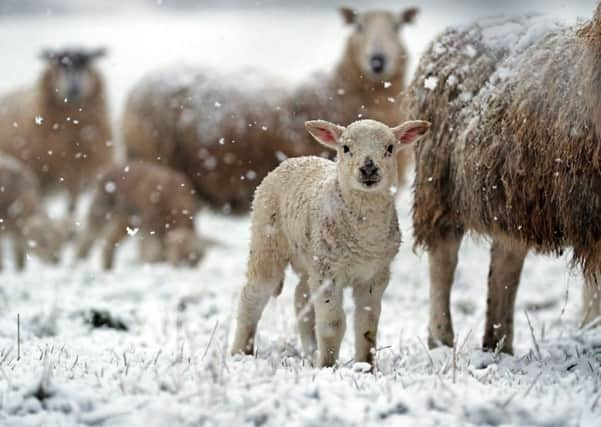Lambs have been hit hard by recent freezing conditions


The so-called Beast from the East, which gripped the country two weeks ago, led to losses of sheep, including pregnant ewes, particularly in the North, National Sheep Association chief executive Phil Stocker said.
While the ‘mini Beast from the East’ appears to have been shorter and less severe, it has come later in the season when more lambs have been born and may have to be outside because farmers do not have space to keep them inside.
Advertisement
Hide AdAdvertisement
Hide AdThe cold conditions have also prevented spring grass growth, leaving farmers reliant on expensive silage to give ewes the nutritious food they need to feed their lambs.
Mr Stocker said: “It’s been much later, people are really getting into the throes of lambing, and we’ve certainly seen problems with shortages of silage and the cost of it.
“Normally you’d expect at this time of year to turn sheep on to some fairly new grass growth high in protein and energy, but there’s hardly a blade of grass available.”
Even when the weather begins to warm up it could be up to six weeks before the grass really gets going.
Although there has been less snow this time round, lambs will now be out in the fields, and it is difficult to bring them back in.